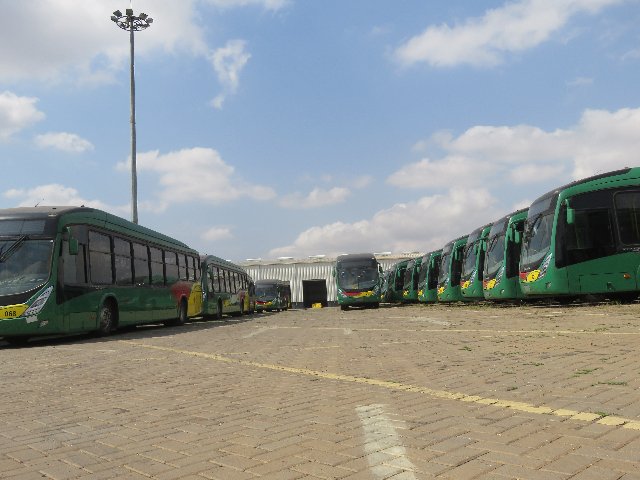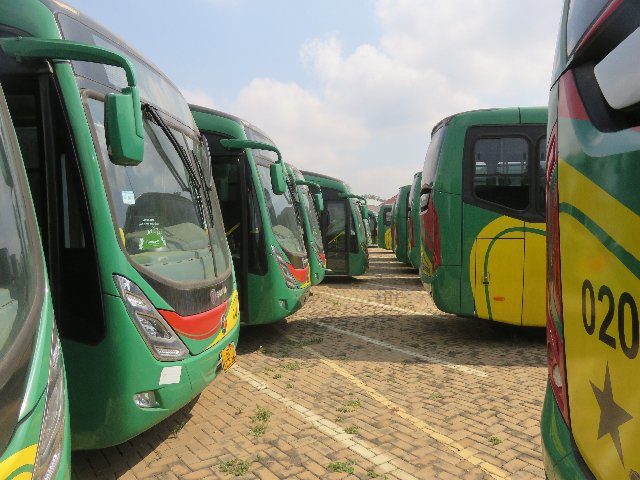Two hundred and forty-five buses have been imported by the government in 2016 to implement the urban transport system to improve public transportation in the country.
A JoyNews investigation has revealed that the buses and the infrastructure to run them have cost the nation GH¢742 million, but the programme has stalled.
In 2016, President John Mahama commissioned the urban transport system, a compromised form of the Bus Rapid Transit (BRT). The legal entity created to manage what became known as the Aayalolo bus system is the Greater Accra Passenger Transport Executive (GAPTE).

The government imported a total of 245 buses for the
Each of the Marco Polo Low Entry City buses cost Ghana $251,600 making total cost of the buses $61,642,000. Together with the cost of developing the infrastructure, the project has cost the Ghana $151 million or more than GH¢742 million cedis. Out of this, only $7million is a grant from the Global Environmental Fund. The rest are loans.
The World Bank financed the infrastructure component of the project from 2008 to 2015. JoyNews wrote to the Bank for comments. The World Bank responded that it rated the implementation of the project as “unsatisfactory.” In an email to JoyNews, the World Bank said:
“In a

The World Bank added that “the business case that emerged assessed 80 buses as the initial requirement.” However, government bought 245, more than three times the number.
The Aayalolo in its operation of the 68 buses has accumulated a debt of GH¢11.9 million. Now it needs an amount of GH¢ 20 million cedis to restart the operation.
There is still a hurdle to scale even if operators of the Aayalolo bus system get the money. Our investigation revealed that interference from politicians and government officials is the reason Aayalolo could not deal with trotro drivers who park and load at the dedicated Aayalolo lanes and bus stops. For this reason, the patronage of the Aayalolo buses dropped from a peak of 11,000 passengers a day in September 2017 to below 5000 passengers a day in September 2018. Besides the deviation from the implementation plan and the cost, a solution will have to be found for the political interference if the service can continue to run efficiently.
Until then, the buses will continue to waste away and Ghana will continue to pay the loans with interest.
Credit: Manasseh Azure Awuni




